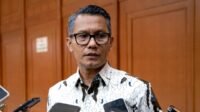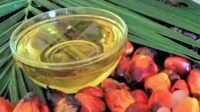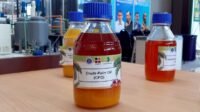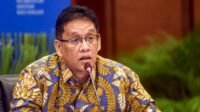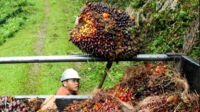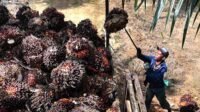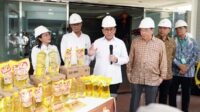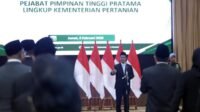PALMOILMAGAZINE, JAKARTA – The Musi Banyuasin Regency Government continues to promote sustainable certification for smallholder oil palm plantations to enhance their competitiveness in the global market. This initiative was marked by the signing of a Memorandum of Understanding (MoU) in Sugihwaras Village, attended by the Head of the Musi Banyuasin Plantation Office, Ahmad Toyibir, and the Head of the Cooperation Division, Diki.
Ahmad Toyibir emphasized that certification is a strategic step to ensure that local farmers’ palm oil meets internationally recognized sustainability and legality standards. He also highlighted the increasing demands from global consumers, particularly in the European and Asian markets, for environmentally friendly and health-compliant palm oil products.
“Certification is more than just an administrative document. Land legality, plantation size, boundary clarity, variety type, and the number of oil palm trees must be transparently recorded and acknowledged. Official systems like the Surat Tanda Daftar Budidaya (STDB) serve as key instruments in this process,” Toyibir stated.
Also Read: PT SMART Tbk and USU Host Talk Show on the Future of the Palm Oil Industry
The Musi Banyuasin Government is committed to supporting the certification program in line with the Ministry of Agriculture’s directives and international standards, including the United Nations’ Sustainable Development Goals (SDGs). However, one of the main challenges is funding, as the certification process requires field verification, farmer training, and infrastructure upgrades.
Toyibir stressed the importance of collaboration between the government, farmers, and industry players to ensure that certification not only boosts competitiveness but also improves farmers’ livelihoods.
Also Read: PT SMART Tbk and USU Host Talk Show on the Future of the Palm Oil Industry
“The question is, will the global market be willing to pay a higher price for certified palm oil? If stricter specifications are required, export prices must also increase to ensure better welfare for farmers,” he added.
Through this initiative, the Musi Banyuasin Regency Government hopes that sustainable palm oil certification will become a key factor in strengthening smallholder palm oil competitiveness while ensuring environmental sustainability and legal certainty for farmers in the region. (P2)


